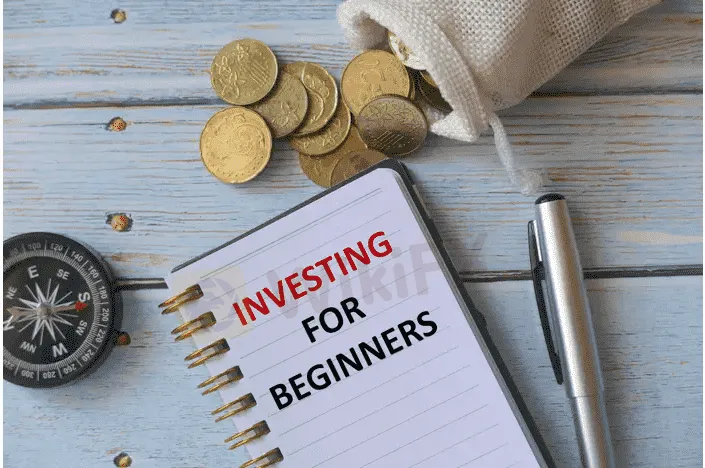简体中文
繁體中文
English
Pусский
日本語
ภาษาไทย
Tiếng Việt
Bahasa Indonesia
Español
हिन्दी
Filippiiniläinen
Français
Deutsch
Português
Türkçe
한국어
العربية
Beginners Guide – Common Mistakes To Avoid While Trading
Abstract:Mistakes are a part of learning, and we all make them when we deal with something new. Yet, mistakes can be quite costly in trading, so beginners should know the typical trading mistakes and try to avoid them right from the start.

Trading Without A Plan
This is the most common mistake made by beginners. You like something about a technical setup, and the next second you make the trade. Trading is a sure way to deal damage to your account.
Instead, you should focus on a trading plan which should include price targets for taking profits and cutting your losses short. The market situation could change, but youre prepared to react if you have a thorough plan.
Avoiding Stop Orders
Stop orders help traders take some profits off the table or cut potential losses in case the position starts to move against them. Some traders avoid these orders as they are afraid to be “stopped out”, but beginners should use them. Id also note that stop orders provide traders with an opportunity to get out of their desks for some time instead of staying glued to the screen for the full length of the trade.
Failing To Cut Losses
This mistake connected with the previous one, “Avoiding Stop Orders”. When the trade goes the wrong way, a trader may hope that the position will change its course, and fail to exit at the price determined in the trading plan.
With a determined stop order price, a move in price signals a change in trend. The situation may get out of control, with losses growing fast. To avoid this scenario, a trader should be ready to cut losses at a predetermined price without hesitation.
Making Trades With Bad Risk/Reward Ratio
The potential reward in every trade should be bigger than its potential risk. If you stick to this simple rule, your trading would be profitable even if only half of your trades are profitable.
Sometimes, beginners see a “sure thing” and enter trades where the potential risk exceeds the reward. This may work out well a couple of times due to blind luck, but this strategy is a sure way to lose money in the longer term.
Taking Positions Of Uncomfortable Size
Sometimes, beginner traders get greedy and put too much money into one trade. They are not prepared to see bigger numbers jumping around on their screen, so ordinary market volatility makes them sweat. As a result, mistakes made and money lost.
The simple way to avoid this mistake is to stay close to comfortable position size. Of course, a trader should progress along the trading journey, but position size increased week after week rather than doubled or tripled because a trader feels lucky today.
Excessive Focus On News
News has a big impact on the foreign exchange market – traders react to economic reports, central bank commentary, general political developments.
Beginner traders should keep in mind that markets interpretation of news is the only thing that matters, while their opinion will have no impact on market dynamics.
A trader may believe that strong economic data from the Eurozone should be bullish forEUR/USD, but the market‘s opinion on any given day may be different. Failure to respect the market’s opinion will lead to a loss, so traders should always focus on the market itself rather than on their own interpretation of the news flow.
Ignoring News
While an excessive focus on news will likely hurt your performance, ignoring news is not an option. You should always know about important economic reports and the time of their release because such news is often market-moving.
Changing Trading Strategies
Any trading strategy needs time to show its potential. If a trader fails to stick to one strategy for a material period of time, he will never be able to find out whether it works or not.
Besides, constant shift between trading strategies creates confusion and chaos, which is bad for your trading account. Once you have chosen a trading strategy, you should use some time to check whether it is working well in current market conditions.
Making Trades For Fun
The goal of trading is to make money. If a trader‘s goal is to feel the excitement of global markets, he’s on the path to losing money.
Sometimes, beginner traders get bored and start making trades for fun., This does not end well. To maximize the likelihood of a profitable trade, a trader must wait for the correct setup according to the trading plan.
Failing To Keep A Trading Journal
A trading journal is a great way to learn about markets and your trading. Once you have enough data, youll be able to analyze what works well and what does not work.
Keeping a trading journal may look like a tedious task, especially after an unsuccessful day. But, your efforts will pay off as the trading journal will provide you with unique insights about your strengths and weaknesses as a trader.
Adding To Losing Positions
Adding to losing positions to average down is a big mistake for beginner traders. Beginners should learn to cut their losses, while complicated strategies that may involve averaging down are suitable only for advanced traders.
The key thing to keep in mind is that adding to losing positions increases risk in a trade that is already going in the wrong direction, and this is dangerous for beginners.
Getting Emotional While Trading
While movies often show traders, who throw their laptops out of the window, this is not something that you should replicate. If you get too emotional, you should stop trading until you calm down.
Sometimes, traders get “mesmerized” by markets and start making trade after trade even if they are losing money. You should avoid getting into this state of mind, so you should move out of your desk at first signs of strong emotions.

Disclaimer:
The views in this article only represent the author's personal views, and do not constitute investment advice on this platform. This platform does not guarantee the accuracy, completeness and timeliness of the information in the article, and will not be liable for any loss caused by the use of or reliance on the information in the article.
Read more

Never Heard of Dynasty Trade? Here's Why You Should Be Worried
Have you heard this name before? No , it’s time you do because staying unaware could cost you. This platform is currently active in the forex trading and has been linked to several suspicious activities. Even if you’ve never dealt with it directly, there’s a chance it could reach out to you through ads, calls, messages, or social media. That’s why it’s important to know the red flags in advance.

Want to Deposit in the EVM Prime Platform? Stop Before You Lose It ALL
Contemplating forex investments in the EVM Prime platform? Think again! We empathize with those who have been bearing losses after losses with EVM Prime. We don't want you to be its next victim. Read this story that has investor complaints about EVM Prime.

WEEKLY SCAM BROKERS LIST IS OUT! Check it now
If you missed this week's fraud brokers list and are finding it difficult to track them one by one — don’t worry! We’ve brought together all the scam brokers you need to avoid, all in one place. Check this list now to stay alert and protect yourself from fraudulent brokers.

Catch the Latest Update on BotBro & Lavish Chaudhary
BotBro, an AI-based trading platform, became popular in India in 2024—but for negative reasons. Its founder, Lavish Chaudhary, who gained a huge following by promoting it heavily on social media. Since then, he has become well-known, but for many controversies. Let’s know the latest update about Botbro & Lavish Chaudhary.
WikiFX Broker
Latest News
Is Your Forex Strategy Failing? Here’s When to Change
FSMA Warns That Some Firms Operate as Pyramid Schemes
Apex Trader Funding is an Unregulated Firm | You Must Know the Risks
Sigma-One Capital Scam? Investors Say They Can’t Withdraw Funds
Federal Reserve likely to hold interest rates steady despite pressure from Trump. Here's what that means for your money
WEEKLY SCAM BROKERS LIST IS OUT! Check it now
Intel drops 9% as chipmaker's foundry business axes projects, struggles to find customers
Palantir joins list of 20 most valuable U.S. companies, with stock more than doubling in 2025
Textiles to whisky: U.K.–India 'historic' deal is set to boost bilateral trade by over $34 billion a year
Thailand-Cambodia border clashes: Cambodia's economy has more to lose, analysts say
Currency Calculator


